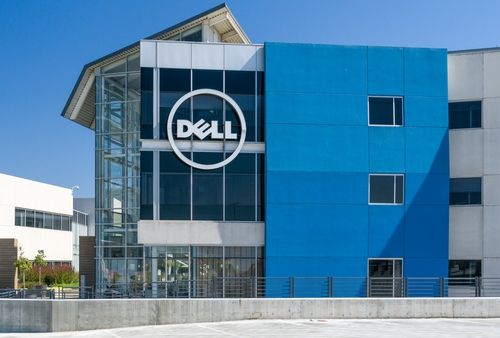- Bitcoin Drops to $70,000. U.S. Government Refuses to Bail Out Market, End of Bull Market or Golden Pit?
- Gold rallies further beyond $5,050 amid flight to safety, dovish Fed expectations
- Bitcoin Bottom Debate: $70,000 or $50,000?
- A Crash After a Surge: Why Silver Lost 40% in a Week?
- Bitcoin Slips Below 75,000 Mark. Will Strategy Change Its Mind and Sell?
- Bitcoin Rout. Bridgewater Founder Dalio Publicly Backs Gold.

Investing.com -- Data centers form the backbone of the modern digital economy, powering everything from cloud services to AI-driven applications.
As the demand for data storage, processing, and transmission continues to rise, the industry supporting data center construction and operation has grown into a massive global market.
“We estimate data center capex was $215bn globally in 2023,” said analysts at BofA Securities, with an estimated 74% of that spend directed toward IT equipment, including servers, networking, and storage.
The remainder of 26%—goes toward the construction, installation, and infrastructure that houses and supports this IT equipment.
Building a data center involves numerous components, each playing a critical role in its functionality.
“We estimate the all-in cost of building a data center to be $38mn/MW. IT equipment costs (servers, networking, and storage) are ~$30mn/MW,” the analysts said.
The vendors involved in constructing these centers span various industries, from server manufacturers to electrical equipment providers. For servers, which make up the largest proportion of data center costs, companies like Dell Technologies (NYSE:DELL), Hewlett Packard Enterprise (NYSE:HPE), and Lenovo play major roles.
Original Design Manufacturers like Quanta and Wistron also have a big presence, especially in hyperscale data centers where custom-built hardware is often preferred.
On the electrical infrastructure side, companies like Schneider Electric (EPA:SCHN), Vertiv, and Eaton (NYSE:ETN) dominate. Schneider leads the market for electrical equipment, including uninterruptible power supplies, switchgear, and power distribution units.
For thermal equipment, used to manage the intense heat generated by high-density servers, Vertiv is the market leader, followed closely by Johnson Controls (NYSE:JCI), Trane, and Daikin.
The growth of artificial intelligence is driving a transformation in data center design and construction. AI workloads, particularly those related to machine learning and deep learning, are far more power-intensive than traditional applications.
AI chips, such as GPUs and specialized AI accelerators, require three to four times more electrical power than conventional CPUs.
As a result, data centers catering to AI applications need enhanced power and cooling capabilities to support these high-performance systems.
This shift is already accelerating the data center market. “The AI chip market to reach ~$200bn in 2027, up from $44bn in 2023,” the analysts said.
The growing adoption of AI is expected to drive the demand for data centers, with an 18% compound annual growth rate forecasted for data centers (measured by electrical capacity) from 2018 to 2023.
The shift toward higher power densities and AI-specific workloads is also contributing to the rise of liquid cooling systems, as traditional air-cooling methods struggle to keep up with the increased heat generated by AI processors.
Managing heat is one of the most critical challenges in modern data centers, especially with the rising adoption of AI hardware. The power densities of AI chips are pushing the limits of conventional air-cooling systems.
In response, data center operators are increasingly turning to liquid cooling solutions. Liquid cooling, which involves circulating cooled liquids directly to server components, is far more efficient than air cooling and can handle the extreme thermal loads generated by modern AI processors.
BofA Securities flags that while air cooling still dominates the market, liquid cooling is quickly gaining ground, particularly for high-performance workloads.
Direct-to-chip liquid cooling, which transfers heat from the server’s processors to a circulating liquid, is emerging as the preferred method.
This solution can cool racks with power densities exceeding 110 kW, far beyond the capacity of air-cooling systems, which max out around 70 kW per rack.
Immersion (NASDAQ:IMMR) cooling, another method where servers are submerged in dielectric fluids, is also seeing increased interest, though it remains a niche technology. Immersion cooling can offer even greater thermal capacity, making it suitable for specialized applications such as cryptocurrency mining and AI.
The data center industry comprises a diverse set of vendors, each specializing in different aspects of the facility's infrastructure.
Schneider Electric, for example, leads the market in electrical infrastructure, providing critical components such as UPS systems, switchgear, and PDUs.
Vertiv dominates the thermal management sector with its range of cooling solutions, including computer room air handlers (CRAHs) and liquid-cooling systems.
For servers, Dell Technologies holds the largest share among original equipment manufacturers, followed by Hewlett Packard Enterprise and Lenovo.
In terms of networking equipment, Cisco (NASDAQ:CSCO) remains the dominant player, with nearly 28% market share.
Other notable vendors include Arista Networks (NYSE:ANET) and Huawei, which also supply high-performance networking solutions essential for data center connectivity.
On the construction and engineering front, firms like Jacobs, Fluor (NYSE:FLR), and AECOM play a vital role in designing and building the physical structures of data centers.
These companies are responsible for ensuring that data centers meet the stringent requirements for power, cooling, and security, while also adhering to local building codes and regulations.
As per BofA Securities, engineering services for data centers represent a $2.3 to $2.8 billion market.
The future of data centers is shaped by several key trends. AI is driving the demand for more powerful, efficient facilities with greater power and cooling capacities.
The shift toward higher rack densities and liquid cooling is already underway, with many data centers retrofitting their existing infrastructure to accommodate these changes.
Over the next few years, BofA Securities forecasts a 14% CAGR in total data center spending, reaching $311 billion by 2026.
In parallel, the rise of hyperscale data centers—massive facilities owned by tech giants like Amazon (NASDAQ:AMZN), Google (NASDAQ:GOOGL), and Microsoft—is changing the landscape.
These facilities are pushing the envelope in terms of both scale and technology, with advanced cooling systems and custom-designed servers becoming the norm. This trend is also fueling innovation among the vendors that supply these critical systems.
Read more
* The content presented above, whether from a third party or not, is considered as general advice only. This article should not be construed as containing investment advice, investment recommendations, an offer of or solicitation for any transactions in financial instruments.






